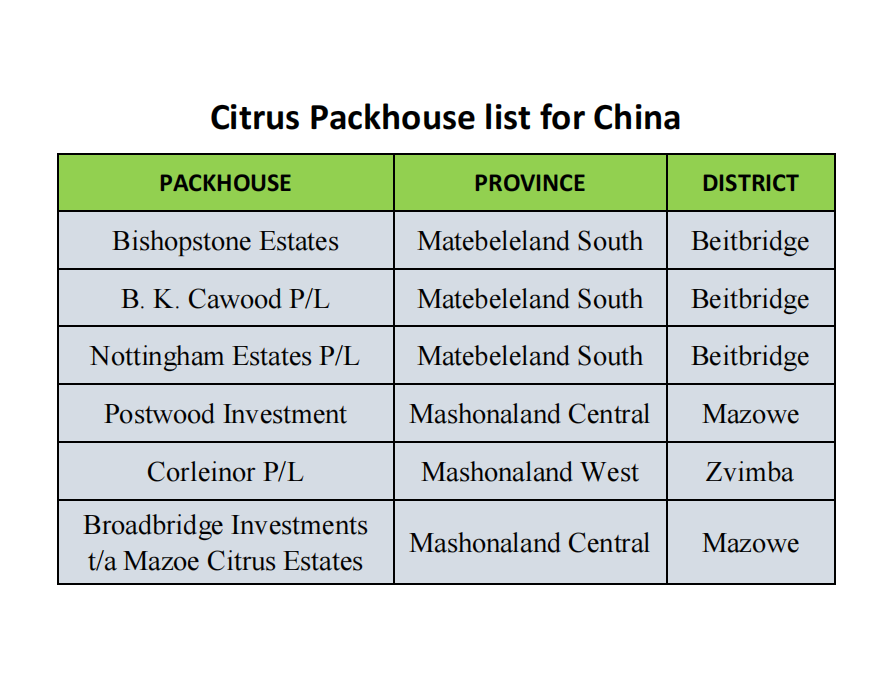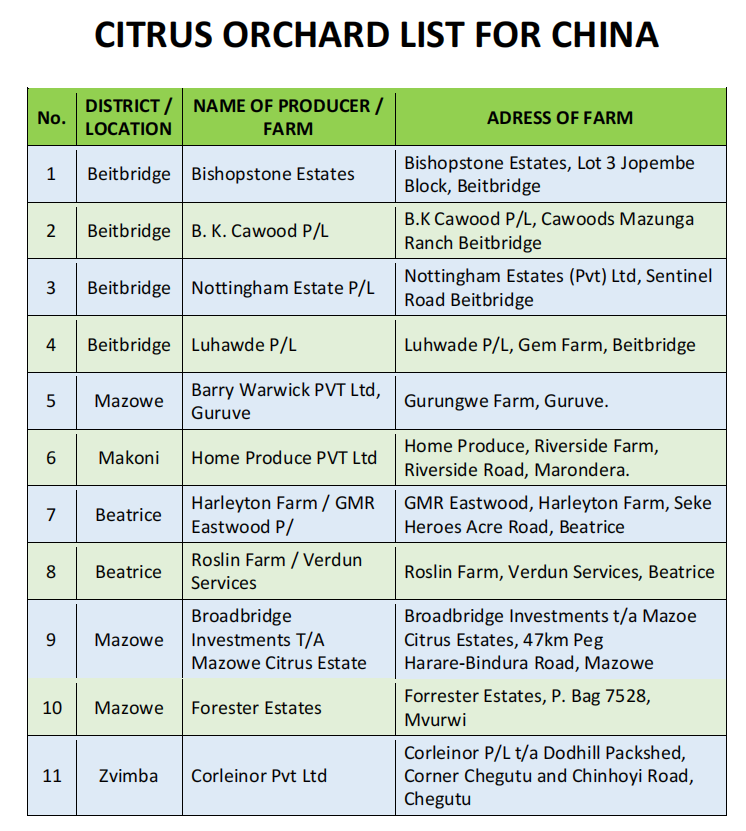- China approves Zimbabwe citrus exports, alternative to EU ban.
- Huge Chinese market means big profits for Zim citrus farmers.
- High export standards require investment in pre-cooling tech.
The citrus industry in Zimbabwe received a major boost following the approval of Zimbabwean orchards and packhouses to export citrus to China by the General Administration of Customs of China on June 1st, 2023. This development comes at an opportune time when the European Union recently banned citrus imports from Zimbabwe and other Southern African countries due to the emergence of False Codling Moth. The new opportunity to export to China, the largest consumer of citrus in the world, gives local farmers an alternative market to fall back on in the event of mishaps from traditional markets like EU.
China’s approval of Zimbabwe’s citrus exports opens floodgates for the country’s citrus farmers to tap into the expansive Chinese market. China consumed over 54 million tonnes of citrus fruits in 2021, accounting for about 34% of total citrus consumption globally. The sheer size of the Chinese market signals a huge export potential for Zimbabwe’s high-quality citrus produce. By exporting to China, Zimbabwean farmers are set to earn higher profits and cushion themselves from losses due to sporadic bans from other markets.
The Chinese market prefers seedless citrus varieties, especially oranges and soft citrus. Luckily, Zimbabwe is well positioned to meet this demand, with popular seedless orange varieties like Valencia and Navel oranges which are grown locally. Other citrus fruits like lemons, limes and grapefruit can also find their way into the Chinese market.
While the False Codling Moth ban might have dealt a blow to some citrus farmers, the new opportunity to export to China is a silver lining that should motivate farmers to ramp up production to satisfy the huge Chinese appetite. For the country, penetrating the Chinese citrus market helps in diversifying export markets and reducing over-reliance on traditional markets like EU and UK. Exporting to China also aligns well with Zimbabwe’s envisaged shift to value addition and beneficiation as stipulated in policy documents like the National Development Strategy 1.
source : General Administration of Customs of China/ twitter: @ChineseZimbabwe
However, Zimbabwean farmers have to grapple with high costs of compliance with China’s tough phytosanitary rules which are meant to protect Chinese consumers. Investment in new technologies like pre-cooling infrastructure will be required to meet set standards. More importantly, farmers have to ensure consistent supply of high-quality produce to build lasting relationships with Chinese importers and gain a strong foothold in the vast Chinese market.
While the EU ban seems to have dealt a blow to citrus farmers, the new opportunity to export to China cushions farmers from potential losses. The approval to export citrus to China broadens Zimbabwe’s export markets and helps in diversifying from traditional markets. With China consuming over 54 million tonnes of citrus annually, the Chinese market presents a huge export potential for Zimbabwe’s citrus farmers. Overall, Zimbabwe stands to benefit from penetrating the Chinese citrus market through export revenue and value addition along the citrus value chain. The future looks juicy for Zimbabwe’s citrus industry.
-Equity Axis News




-featured.jpg)


